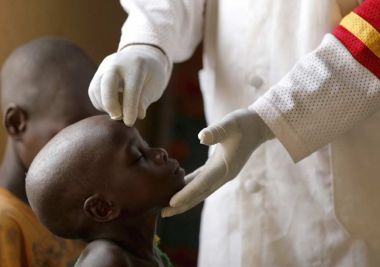Over 1.4 million children forced to flee Boko Haram, UN says

Over 1.4 million children have been forced to flee Boko Haram in Nigeria, the UN's children's agency has said.
A sharp increase in attacks has displaced half a million children in the last five months alone, bringing the total number of children on the run to 1.4 million, a statement released by UNICEF on Friday said. Many of the children are severely malnourished and are in danger of cholera as they lack access to safe water.
"Each of these children running for their lives is a childhood cut short," said Manuel Fontaine, UNICEF Regional Director for West and Central Africa, in the statement.
"It's truly alarming to see that children and women continue to be killed, abducted and used to carry bombs."
Boko Haram are a militant Islamist group who have been trying to create an Islamic state in north-east Nigeria, run by their own extreme interpretation of sharia law.
They have waged an insurrection for the last six years and controlled large areas of north-east Nigeria at the beginning of 2015 where they began to implement sharia. They were pushed out by Nigerian troops with the help of Chad, Cameroon and Niger after the abduction of over two hundred girls from a school in northern Nigeria sparked an international campaign.
Boko Haram have now reverted to guerilla warfare, raiding villages and bombing places of worship and densely populated spaces. A spike in the number of attacks has led to the sharp increase of children fleeing the violence.
"In northern Nigeria alone, nearly 1.2 million children – over half of them under 5 years old – have been forced to flee their homes," the UNICEF statement read.
"An additional 265,000 children have been uprooted in Cameroon, Chad and Niger."
Alongside other agencies and governments, UNICEF has increased its activities in the area and have vaccinated over 315,000 children against measles and given over 200,000 access to clean water.
However the charity said it has struggled with funding and has only received 32 per cent of the $50.3million required for its humanitarian response this year in the region.
"With more refugees and not enough resources, our ability to deliver lifesaving assistance on the ground is now seriously compromised," said Fontaine.
"Without additional support, hundreds of thousands of children in need will lack access to basic health care, safe drinking water and education."











